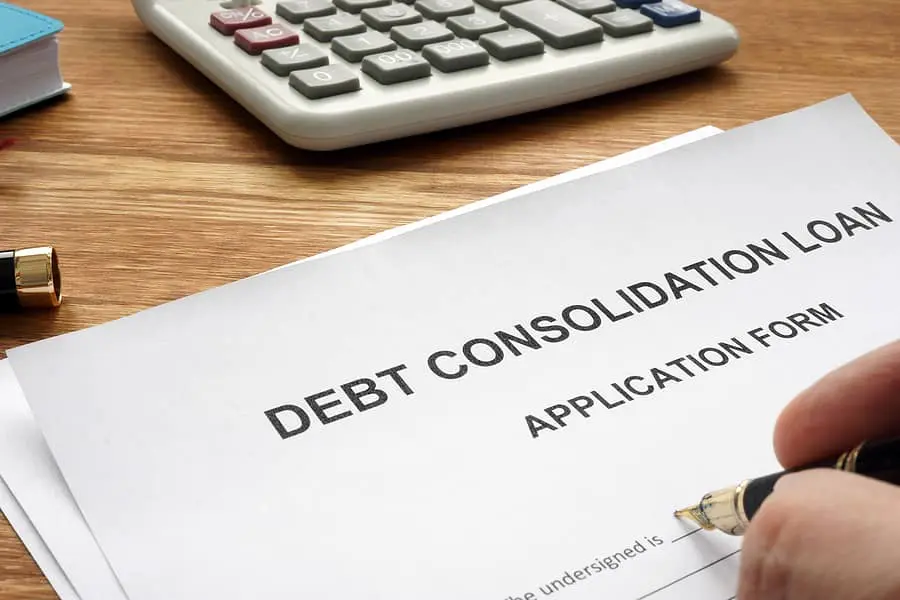 Unsecured debt can quickly become a financial burden, leading to stress, high-interest payments, and a sense of helplessness. If you find yourself juggling multiple credit card bills, personal loans, and other unsecured debts, consolidating debts can be an effective strategy to regain control of your finances. In this article, we will explore what consolidating debts is, how they work, and the advantages of using them to pay off unsecured debt.
Unsecured debt can quickly become a financial burden, leading to stress, high-interest payments, and a sense of helplessness. If you find yourself juggling multiple credit card bills, personal loans, and other unsecured debts, consolidating debts can be an effective strategy to regain control of your finances. In this article, we will explore what consolidating debts is, how they work, and the advantages of using them to pay off unsecured debt.
Understanding Debt Consolidation Loans
Debt consolidation is a financial strategy that involves taking out a single loan to pay off multiple existing debts. Unsecured debts, such as credit card balances, medical bills, personal loans, and payday loans, can carry high-interest rates, making it challenging to make substantial progress in paying them off. A debt consolidation loan is typically a personal loan with a lower interest rate, which allows you to combine these high-interest debts into one manageable monthly payment.
How Debt Consolidation Loans Work
- Assess Your Debt: The first step in the debt consolidation process is to evaluate your current unsecured debts. Make a list of all your outstanding balances, including the names of creditors, interest rates, and monthly payments.
- Choose a Lender: Once you have a clear understanding of your debt situation, shop around for a reputable lender that offers debt consolidation loans. Many financial institutions, such as banks, credit unions, and online lenders, provide this service.
- Apply for the Loan: You’ll need to apply for a debt consolidation loan, and the lender will assess your creditworthiness. Having a good credit score will help you qualify for a lower interest rate, which is crucial for maximizing the benefits of consolidation.
- Use the Loan to Pay Off Debts: If approved, the lender will provide you with a lump sum, which you can use to pay off your existing unsecured debts in full. This effectively transfers your debt from multiple creditors to a single lender.
- Make Monthly Payments: With a debt consolidation loan, you’ll have a fixed monthly payment, usually at a lower interest rate than your previous debts. This simplifies your financial management and makes it easier to budget.
Advantages of Debt Consolidation Loans
- Lower Interest Rates: One of the primary benefits of using a debt consolidation loan is the potential for a lower interest rate. With reduced interest, you can save money over the life of the loan, allowing you to pay off your debt more quickly.
- Simplified Finances: Managing multiple creditors and due dates can be overwhelming. Consolidating your unsecured debts into one monthly payment streamlines your financial life, making it easier to keep track of your payments.
- Fixed Monthly Payments: Debt consolidation loans come with fixed monthly payments, which means you’ll always know how much you owe and when it’s due. This predictability helps you budget and avoid unexpected financial surprises.
- Potential Credit Score Improvement: By paying off your existing unsecured debts with a debt consolidation loan, you can improve your credit score over time, as you’ll be reducing your credit utilization ratio and demonstrating responsible repayment behaviour.
- Avoiding Collection Calls: If you’ve fallen behind on multiple unsecured debts, you may be experiencing collection calls and late fees. Debt consolidation can help put an end to these stress-inducing collection efforts.
Consolidating debts is a valuable tool for those seeking to get a handle on their unsecured debts. By combining multiple high-interest debts into one manageable loan with a lower interest rate, you can reduce the financial stress and start making meaningful progress toward financial freedom. However, it’s essential to carefully consider your financial situation, shop for the best loan terms, and commit to responsible financial management to make debt consolidation a successful strategy for paying off unsecured debt. With diligence and discipline, you can pave the way to a debt-free future and regain control of your financial well-being.

